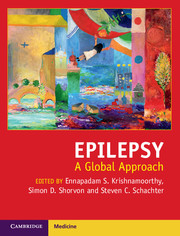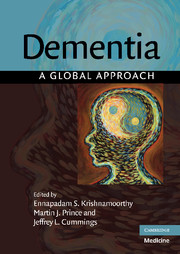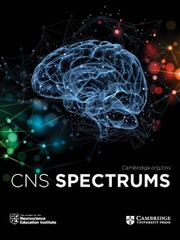Epilepsy
This comprehensive, multidisciplinary approach to epilepsy compares and contrasts scientific knowledge, clinical experience and social consciousness between Western and non-Western cultures, enhancing transcultural understanding and providing a paradigm for an integrative, truly global health policy for this disorder. Topics covered include pharmacological and non-pharmacological management of epilepsy; care models and traditional medical systems; service organization in resource-limited countries; cultural perspectives on consequences of epilepsy; social, anthropological, economic, political, and spiritual issues related to living with epilepsy; infectious and non-infectious causes and risk-factors; region-specific syndromes. Uniquely drawing attention to both a medical perspective and the burden of living with epilepsy, this is a must-have reference work for epileptologists, neurologists, epidemiologists, medical policymakers and health administrators in both the developed and developing world.
- Includes a comprehensive section on complementary and alternative treatment methods of epilepsy, balanced against allopathic treatment and surgical models
- Written by expert clinicians representing the continents of Africa, Asia, South America, and the Western world
- Outlines research priorities for low- and middle-income countries (LAMICs)
Product details
April 2017Hardback
9781107035379
232 pages
253 × 195 × 15 mm
0.66kg
31 b/w illus. 19 tables
Available
Table of Contents
- Part I. Editorial Introduction:
- 1. Epilepsy: the global burden and transcultural issues
- Part II. Infective Causes of Epilepsy:
- 2. The non-infective causes of epilepsy
- 3. Infectious causes of epilepsy: NIMHANS experience and review
- 4. Infectious causes of epilepsy: cerebral malaria
- 5. Infectious causes of epilepsy: cysticercosis in South America
- Part III. Consequences of Epilepsy:
- 6. Physical consequences of epilepsy
- 7. Quality of life and the stigma of epilepsy
- 8. Neuropsychiatric consequences of epilepsy
- 9. Cognitive consequences of epilepsy: a global perspective
- 10. Naming epilepsy: culture-specific perceptions of epilepsy
- 11. Knowledge, attitude and practice toward epilepsy
- 12. The economic burden of epilepsy in China
- Part IV. Comprehensive Epilepsy Care:
- 13. The clinical approach to investigation and service organization of epilepsy care in low- and middle-income countries
- 14. Comprehensive epilepsy care: insights from care models in LAMICS: Latin America
- 15. Comprehensive epilepsy care: transcultural issues and the development of a best practice model in India
- 16. Comprehensive epilepsy care in China
- Part V. The Medical Management of Epilepsy:
- 17. The medical management of epilepsy: basic principles
- 18. The medical management of epilepsy: choice of drugs
- 19. The medical management of epilepsy: use of generic drugs
- 20. The medical management of epilepsy: antiepileptic drugs and children
- 21. The medical management of epilepsy in low- and middle-income countries
- 22. The challenge of epilepsy in low-income countries: insights from Laos
- 23. Integrated thought: medical management of epilepsy
- Part VI. The Surgical Management of Epilepsy:
- 24. Epilepsy surgery in high-income countries: the example of Great Britain
- 25. Models of epilepsy surgery in a large LAMIC: ideal and pragmatic
- 26. Models of epilepsy surgery in a large LAMIC: Sree Chitra Tirunal Institute, India
- 27. Setting up an epilepsy surgery service in Malaysia
- 28. Ideal and pragmatic models of epilepsy surgery in a large LAMIC
- 29. Integrated thought: epilepsy surgery
- Part VII. Non-Pharmacologic Management of Epilepsy
- 30. Non-pharmacologic and psychological management of epilepsy in developed countries
- 31. Ayurveda and yoga in the management of epilepsy
- 32. Traditional Chinese medicine in the management of epilepsy
- 33. Traditional medicine in the management of epilepsy in Ghana
- 34. Complementary and alternative medicine in the management of epilepsy: a global perspective
- 35. Integrated thought: non-pharmacologic management of epilepsy
- Part VIII. Epilepsy Issues with Global Health Impact:
- 36. The epilepsy treatment gap
- 37. Intractable epilepsy: implications with regard to LAMICs
- 38. Epilepsy and intellectual disability
- 39. Legal implications of epilepsy and epilepsy management
- 40. The global campaign against epilepsy
- 41. Integrated thought: issues with global health impact
- Part IX. International Perspectives:
- 42. Perspectives on epilepsy in Tibet
- 43. Perspectives on epilepsy from Asian-American populations living in the USA
- 44. Perspectives on epilepsy in The Lebanon
- 45. Perspectives on epilepsy in the Philippines
- 46. Integrated thought: international perspectives.







